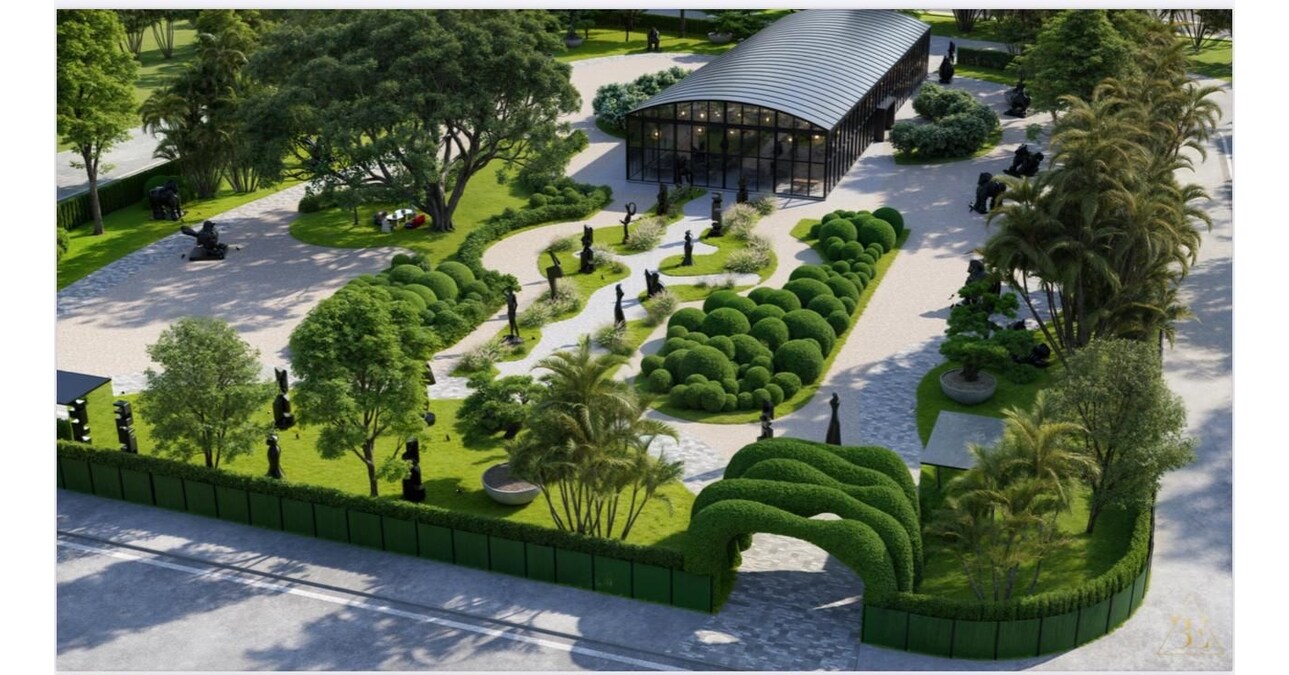MILAN — The second edition of White Milano dedicated to resort ready-to-wear and accessories collections, now called White June, saw a significant increase in attendance at Via Tortona 27. The number of exhibitors and visitors surged, with the former growing to 101 from 62, including both Italian and international brands, and visitors rising by 30 percent to 1,562, including international buyers and press representatives.
Despite the challenging economic conditions affecting small and medium-sized enterprises and boutiques, the three-day event from June 15 to 17 exuded an upbeat atmosphere. “We consider last year’s edition a trial run since we had only a couple of months to gather brands,” explained Simona Severini, head of fashion research, promotion and development for the fair. “The growing numbers show that we correctly identified a market need and that insiders trusted us and our intuition,” she added.
The increase in brand participation also expanded the product range beyond just beachwear. “For us, resort doesn’t just mean beachwear. We’ve included mountain and countryside collections, considering the types of audiences who, for example, choose the masserie, the chic farmhouses in Puglia. We selected brands based more on a state of mind, on how people want to spend their leisure time.”
In addition to resort offerings, the trade show, led by founder and art director Massimiliano Bizzi, featured men’s and women’s collections in dedicated spaces managed by Victor Showroom, known for its selection of new talents, and the Summer Games showroom, which launched its eponymous collection alongside its portfolio of brands.
Significant buyer presence included stores like Bloomingdale’s, Hotoveli and H.Lorenzo from the U.S.; Le Bon Marché from France; Takashimaya and BayCrew from Japan; Waldorf Astoria from Mexico; Rubaiyat and Westerly from Saudi Arabia; Bulgari Resorts, Royal Atlantis Group and Sand Dollar from the United Arab Emirates, and Antonia, Belmond Hotels, Biffi, Dantone, Rinascente, Rocco Forte Hotels, Six Senses, Sugar, Biffi and Silvia Bini from Italy.
Colombian companies were notably present among the brands, starting with Agua, the high-end collection from Agua Bendita. Founded in Medellin by Mariana Hinestroza and Catalina Álvarez in 2003, Agua Bendita gained recognition for its swimwear and its total look inspired by traditional local clothing. In 2018, Agua was launched as an eco-conscious label, valuing local craftsmanship and female empowerment by enabling women artisans to work from home.
Looks from the Agua resort collection.
Another Colombian brand, Atalí, founded in 2019 by Andrea Carolina in Barranquilla, draws inspiration from local flowers, transforming their colors and shapes into large, handmade jewelry pieces by local women. Apaya, another example of female entrepreneurship from Colombia, is a bag brand created by three sisters who reinterpret traditional models with a modern twist, using natural fibers and fabrics made in the Andes.
From Miami, niLuu is another collection created by a woman, Nilufer Bracco, a former professional volleyball player with Turkish roots. Bracco aims to provide growth opportunities for women in her home country by producing there and choosing suppliers committed to social well-being with biodegradable and vegan fabrics.
Sruti Dalmia promotes sustainable fashion from India through small-batch, eco-responsible production, prioritizing premium natural and experimental fabrics sourced responsibly across India. Each look is made-to-order to minimize waste, with female empowerment crucial to the brand. “We collaborate with skilled rural artisans, with 70 percent being women, to uplift India’s craftsmanship heritage,” Dalmia said.
Among the Italian companies, special attention was given to Coppola e Toppo, a costume jewelry brand founded in 1948 and known for serving post-war couturiers like Elsa Schiaparelli, Christian Dior, Cristobal Balenciaga, Valentino and Capucci, now revived by Sicilian entrepreneur Paolo Longhitano. Hira, a collection responding to the market’s demand for a return to elegance with quality fabrics and essential lines, was also well received.

A look by Hira.
Scandinavian brands Caroline Svedbom and Kknekki were highlighted by buyers as well. Caroline Svedbom, based in Sweden, has a family legacy of more than 120 years in jewelry. In 2013, she launched her first collection, handmade in Athens, Greece, with Swarovski crystals and plated in gold or rhodium by a team of about 40 artisans.

Earrings by Caroline Svedbom.
Leonard Gren
Kknekki, a Norwegian brand from Bon Dep, a family-owned company designing and manufacturing accessories for a decade, focuses on durable, colorful and stylish genderless hairbands that are popular with retailers worldwide.







